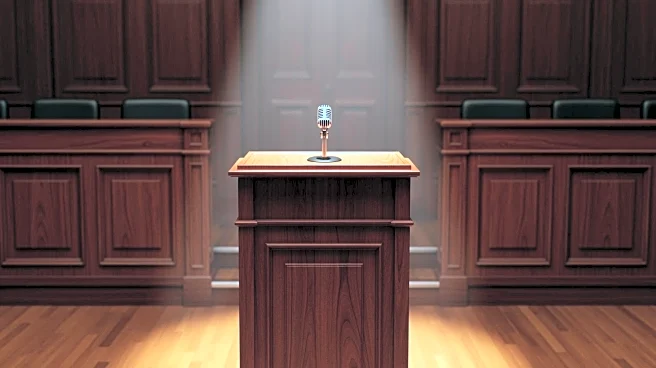Rapid Read • 8 min read
The United Nations agencies, including FAO, UNICEF, WFP, and WHO, have confirmed famine conditions in Gaza, affecting over half a million people. The Integrated Food Security Phase Classification (IPC) analysis indicates that famine conditions are spreading from Gaza Governorate to Deir Al Balah and Khan Younis Governorates. The agencies are calling for an immediate ceasefire to allow humanitarian aid to reach those in need. The situation is dire, with widespread starvation, acute malnutrition, and preventable deaths. The conflict has severely restricted access to food, water, and medical aid, exacerbating the humanitarian crisis.
AD
The confirmation of famine in Gaza highlights a severe humanitarian crisis that demands urgent international attention. The ongoing conflict and restrictions on humanitarian access have led to catastrophic levels of food insecurity and malnutrition, particularly affecting children and vulnerable populations. The call for a ceasefire is crucial to prevent further loss of life and to enable the delivery of essential aid. The situation poses significant ethical and moral challenges for the international community, emphasizing the need for coordinated efforts to address the crisis and support the affected populations.
The UN agencies stress the need for a sustained ceasefire to facilitate large-scale humanitarian operations. They emphasize the importance of restoring commercial flows, market systems, and local food production to mitigate the famine's impact. The agencies are advocating for increased food aid, improved delivery systems, and the rehabilitation of Gaza's health system. The international community's response will be critical in determining the future of the humanitarian situation in Gaza, with potential diplomatic and political implications.
The famine in Gaza underscores the broader implications of prolonged conflict on civilian populations, highlighting the intersection of humanitarian, ethical, and geopolitical issues. The crisis may influence international relations and policy decisions, as stakeholders grapple with the moral imperative to intervene and provide aid. The situation also raises questions about the effectiveness of current humanitarian strategies and the need for innovative solutions to address complex emergencies.
AD
More Stories You Might Enjoy










